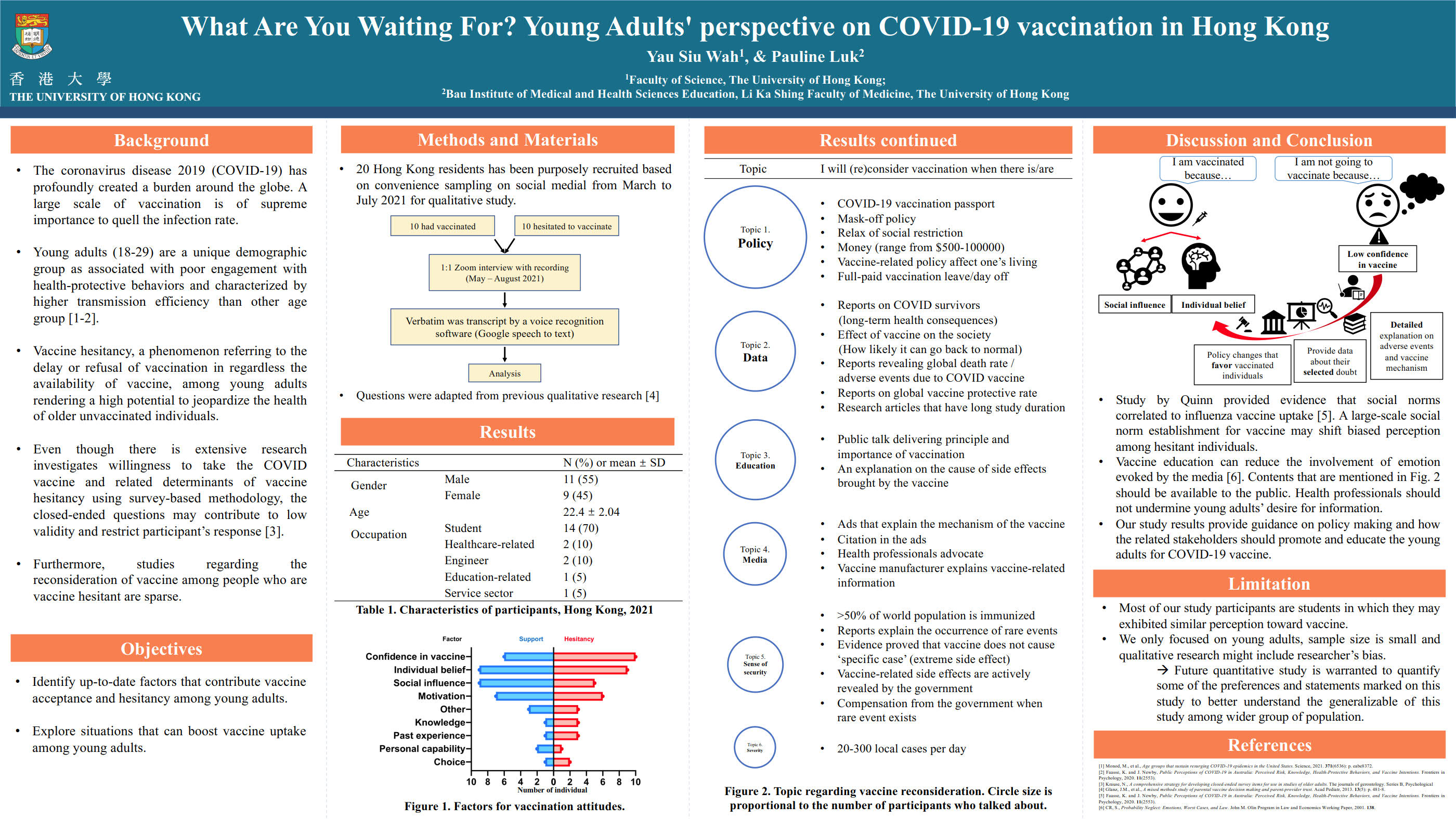Young adults’ perspectives, acceptance, hesitancy and suggestion regarding the COVID-19 vaccine uptake in Hong Kong
Young adults’ perspectives, acceptance, hesitancy and suggestion regarding the COVID-19 vaccine uptake in Hong Kong
By Yau Siu Wah Alan
Supervised by Dr Pauline Luk, Lecturer, Bau Institute of Medical and Health Sciences Education, LKS Faculty of Medicine, The University of Hong Kong
Introduction:
The coronavirus disease 2019 (COVID-19) has become a pandemic and profoundly creating burden around the globe. As of 27th August 2021, it has contributed to more than 4 million documented deaths with more than 200 million people being infected with the disease. Preventive efforts such as vaccination is of supreme importance to quell the infection rate. Despite the fact that many countries have implemented a covid-19 vaccination program, however, vaccine hesitancy, a phenomenon referring to the delay or refusal of vaccination in regardless the availability of vaccine, has remained a substantial challenge in achieving herd immunity in which World Health Organization (WHO) has listed as one of the top ten global threats in 2019.
It has been estimated by the Centers for Disease Control and Prevention (CDC) that an uptake of 82% is necessary to achieve herd immunity when R0 = 5.7 via either vaccination or prior infection. In Hong Kong, despite the government has offered free vaccination to the public, the vaccination rate is still falling below the target. Young adults are a unique demographic group as characterized by higher transmission efficiency than other age group, rendering a high potential to jeopardize the health of older unvaccinated individuals. Furthermore, Faasse revealed that youngster (18-29) was associated with poor engagement with health-protective behaviors in Australia. Even though there is extensive research investigates willingness to take the COVID vaccine and related determinants of vaccine hesitancy using survey-based methodology, the closed-ended questions may contribute to low validity and restrict participant’s response. Moreover, studies regarding the reconsideration of vaccine among people who are vaccine hesitant are sparse.



